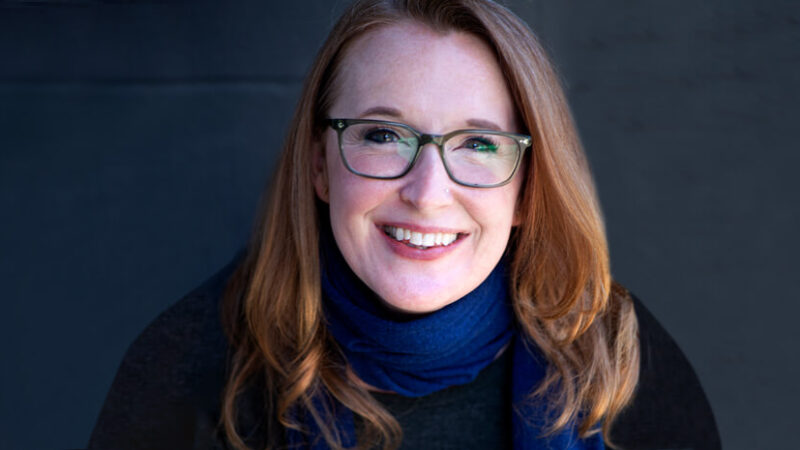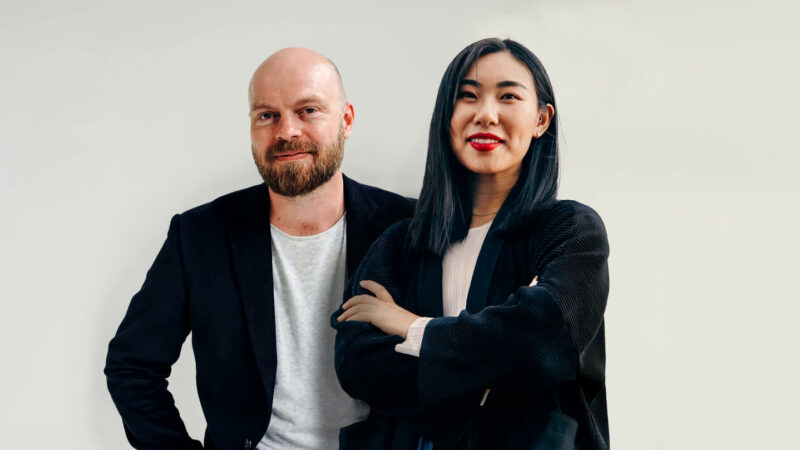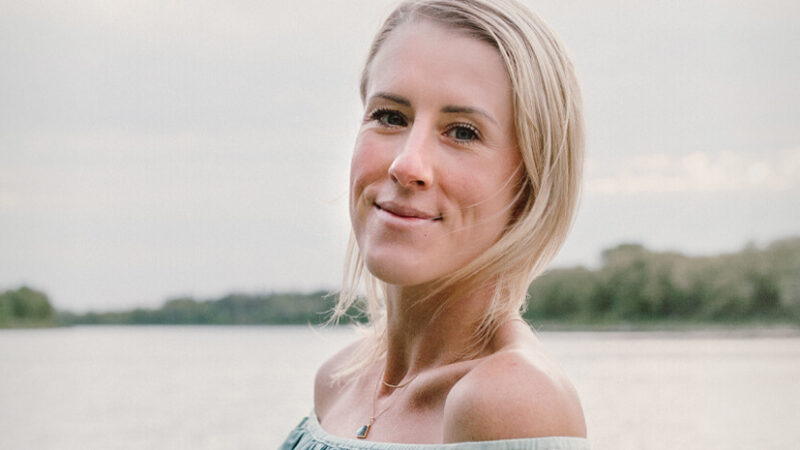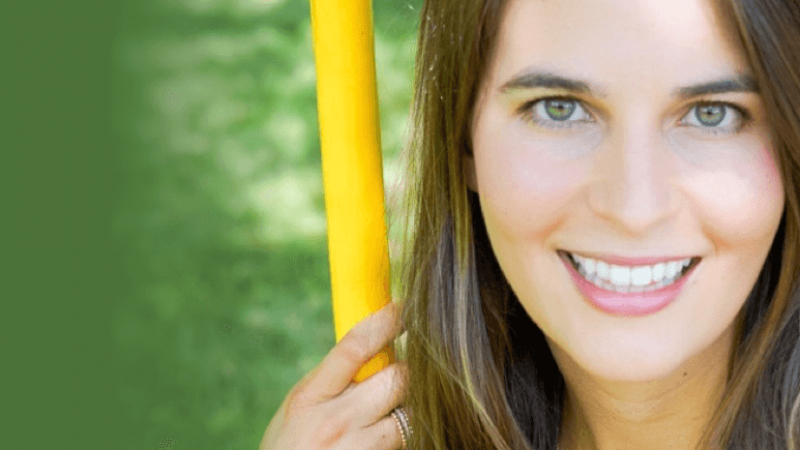-
E117: The Real Work: Letting Go from Within
Michael Singer — October 2, 2025
True spirituality isn’t about mystical experiences or lofty ideals—it’s about honestly facing...
-
Once More: Reflections on Reincarnation and the Gap Between Lives
Tami Simon — September 26, 2025
In this special reflection episode of Insights at the Edge host Tami Simon looks back on her...
-
Honey Tasting Meditation: Build Your Relationship with Sweetness
There is a saying that goes “hurt people hurt people.” I believe this to be true. We have been...
Written by:
Amy Burtaine, Michelle Cassandra Johnson
-
Many Voices, One Journey
The Sounds True Blog
Insights, reflections, and practices from Sounds True teachers, authors, staff, and more. Have a look—to find some inspiration and wisdom for uplifting your day.
Standing Together, and Stepping Up
Written By:
Tami Simon -
The Michael Singer Podcast
Your Highest Intention: Self-Realization
Michael Singer discusses intention—"perhaps the deepest thing we can talk about"—and the path to self-realization.
This Week:
E116: Doing the Best You Can: The Path to Liberation -
Many Voices, One Journey
The Sounds True Blog
Insights, reflections, and practices from Sounds True teachers, authors, staff, and more. Have a look—to find some inspiration and wisdom for uplifting your day.
Take Your Inner Child on Playdates
Written By:
Megan Sherer
600 Podcasts and Counting...
Subscribe to Insights at the Edge to hear all of Tami's interviews (transcripts available, too!), featuring Eckhart Tolle, Caroline Myss, Tara Brach, Jack Kornfield, Adyashanti, and many more.
Most Recent
MaryCatherine McDonald: The Trauma Response Is Never W...
For centuries, we’ve been taught that being traumatized means we are somehow broken—and that trauma only happens to people who are too fragile or flawed to deal with hardship. Instead, says Dr. MaryCatherine McDonald, the trauma response proves our spirit cannot be broken. In this podcast, Tami Simon and “MC” (as her students call her) discuss her new book, Unbroken: The Trauma Response Is Never Wrong—And Other Things You Need to Know to Take Back Your Life, and how we might as a society begin to update our understanding of trauma and its healing.
Tune in for this inspiring conversation about the impact of trauma on the narratives that make up our identity; recalibrating the nervous system after trauma; memory and the hippocampus; relearning a sense of embodied safety; dealing with loss in our grief-phobic culture; trauma defined as “an unbearable emotional experience that lacks a relational home”; the unconscious nature of triggers, and how to raise awareness around them; the miracle of your adaptive brain and body; trust and community in the healing of trauma; reconciling life’s ultimate vulnerability; finding resilience and strength in these uncertain times; attunement, holding space, honesty, and other elements that provide a relational home; realizing an anchor in the “tiny little joys”; the healing power of… Tetris?; healthy regulation; and more.
Iain S. Thomas & Jasmine Wang: Can AI Answer Life...
Mention to someone the words “artificial intelligence,” and chances are you’ll get a very emotional response. For some, the thought of AI triggers fear, anger, and suspicion; for others, great excitement and anticipation.
In this podcast, Tami Simon speaks with technologist and philosopher Jasmine Wang along with poet Iain S. Thomas, coauthors of the new book What Makes Us Human? An Artificial Intelligence Answers Life’s Biggest Questions. Whatever your view on AI, we think you’ll find this conversation profoundly interesting and informative!
Listen now as Tami, Jasmine, and Iain discuss the artificial intelligence known as GPT-3; holding an attitude of “critical techno optimism”; finding kinship with digital beings; the question of sentience; the sometimes “hallucinatory” nature of generative AI; the three main aspects of deep learning technology—classification, recommendation, and generation; AI as a creativity compounder; bringing a moral lens to the development and deployment of AI; the central human themes of presence, love, and interconnectedness; acting with intent and living with meaning; and more.
Note: This episode originally aired on Sounds True One, where these special episodes of Insights at the Edge are available to watch live on video and with exclusive access to Q&As with our guests. Learn more at join.soundstrue.com.
Growing through the Peak of Your Pain
A doctor of Chinese medicine who was a famous bonesetter in China once said to me with a heavy accent, “Here, you [meaning Americans] don’t like to feel pain. You don’t like to suffer.” He said this as he wrung my neck as one would a chicken’s, snapping it back and forth in a way I had never experienced. I screamed as if he were breaking my bones.
For a month prior, I hadn’t been able to move my head to the left or right. My left arm was nearly immobile. I had just started a new job that probably should have ended the moment my body locked up. I went for acupuncture, then pain pills; used ice and hot water bottles. I went to medical doctors, and they X-rayed the area and gave me more pills and a brace to keep my head still—the kind used for whiplash. I later tried one of the best chiropractors in the city, and she gave me the number of a neurosurgeon, thinking I had a herniated disk and would need surgery. I did not seek out the surgeon and stayed in pain for weeks. Finally, a friend from my job gave me the number of her doctor, the famous bonesetter mentioned above. I called him at 10:00 pm that night. That’s how much pain I was in. To my surprise, he answered the phone. He said, “Come in. I wait for you.”
I said, “Now?”
“Yes!” he said. “You have pain, come now.”
Wow, I thought. Now that’s a healer. It didn’t matter that it was the middle of the night.
My partner at the time drove me across the Bay Bridge to San Francisco, and I met my friend from work at the healer’s office. She had come to translate from Mandarin to English. The place was tiny, with photos on the wall of city dignitaries and other famous people who were his clients.
“Hi.” The bonesetter smiled like a boy. “I’m Dr. Fu.”
I sat down in his small room and showed him my X-ray. He threw it on the floor without looking at it. He took the brace off my neck and threw that on the floor, too, right next to the X-ray. Then he twisted me into a pretzel. I howled, yelped, screamed, and hollered.
All of it. No wonder he had me come when no other patients were there. He told me to breathe, and I did my best. Suddenly, at the peak of the pain, I felt my muscles release in my neck, shoulders, and back. It was in fact a miracle to me. I had suffered so long.
I carried my brace and X-ray out in my hands. It was as if I had never been in pain or unable to move. The night sky filled with stars made me feel like I was on another planet. I was in bliss. When I returned to work, everyone was shocked. Was it a miracle, or was it the ability to withstand a greater amount pain to be free of the pain? I would have never imagined that I needed to go deeper into the pain, deeper into the darkness of it. All I had wanted was out.
We are averse to pain and suffering and understandably so, given our American sensibility. We have access to a large market of remedies, products, spiritual paths, and, yes, gateways to the freedom from suffering. I wonder how many times we have diverted our own freedom when we have discovered there is more pain, more trouble, more darkness ahead and we keep adding on remedies. What is the mindset, along with fear and terror, that causes us to avoid our suffering rather than go deeper into seeing what is there? Yes, I should have quit that job on the spot when the pain started, even though I had been there for only a few weeks. I didn’t know at the time, but the pain that was deep inside was because I wanted something different for my life than the job I had accepted. The pain was my impatience, and it was at the same time physical pain in real time. I didn’t wait to allow that“something different” to be revealed in the darkness.
Since all paths—religious, spiritual, or without name—intersect in the place of darkness, darkness is the place where the mind is forced to detach itself from whatever it has grabbed onto in life. And in that nothingness, in that dark place, we awaken.
What of darkness terrorizes us so that we run from it, rather than go deeper into it? How can we bear dark times, or, more explicitly, horrifying times, with the skill of an awakened one? Misery, struggle, and sorrow are not the sole intentions of this life. Yet we can respect our interrelationship with everything in the world, including the suffering in, around, and between us. Is there a way to live in unsettling times that we have forgotten?
Excerpted from Opening to Darkness: Eight Gateways for Being with the Absence of Light in Unsettling Times by Zenju Earthlyn Manuel.
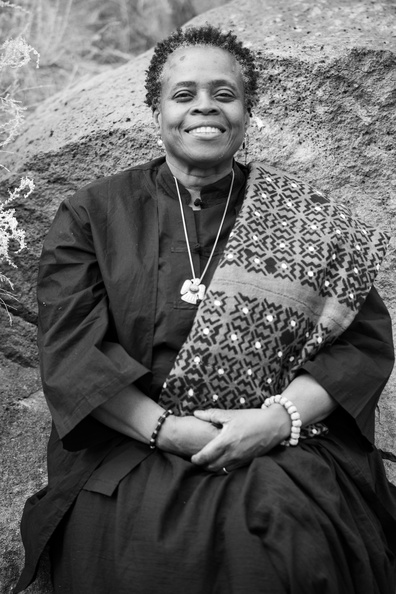
Osho Zenju Earthlyn Manuel, PhD, is an author, poet, ordained Zen Buddhist priest, teacher, and artist, whose diverse background, education, and experience all provide a unique integral and cultural perspective within the space of religion and spirituality. She is the author of The Shamanic Bones of Zen, The Way of Tenderness, The Deepest Peace, and more. Manuel is a native of California and now resides in New Mexico. Learn more at zenju.org.
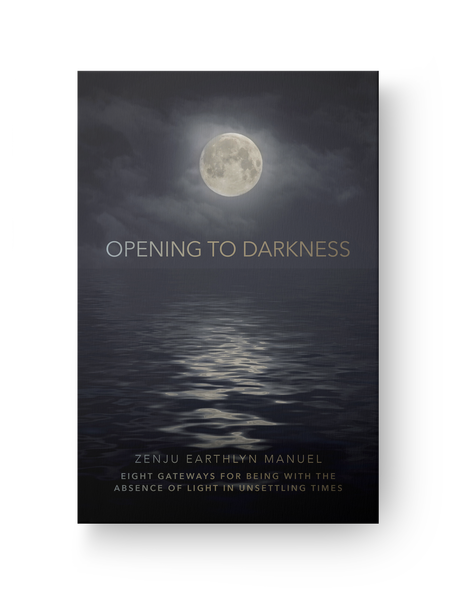
Learn More
Amazon | Barnes & Noble | Bookshop | Sounds True
Customer Favorites
Accessing the Akashic Records
Ashley Wood is the cofounder, alongside her creative collaborator Ben Wood, of A Line Within, a platform dedicated to supporting others in using their Akashic Records to understand their soul journey. Ashley hosts The Line Podcast, a weekly show where she shares channeled teachings and tools for living in alignment with your soul. In this podcast, Ashley joins Sounds True founder Tami Simon to talk about her new book, The Line: A New Way of Living with the Wisdom of Your Akashic Records.
Tami and Ashley discuss: the prayer or “sound code” required for entering the Records; the Pleiadian energies known as the Pinnacle; becoming an open conduit for your soul’s wisdom; the Line, an energetic, intuitive frequency that we all hold within us; the connection between intuition and your Akashic Records; activating your awareness of your own Line; the crown of the head and the bottom of the feet as the bridge between our energetic selves and our physical selves; the practice of journaling to develop trust in your own guidance; how to distinguish between discursive thinking and Akashic information; how the feeling of alignment is uniquely personal; living with open eyes; why “the most important thing we can learn in this physical life is how to show ourselves unconditional love”; the evolutionary and revolutionary changes unfolding in our current times and the call to serve through offering your gifts; and more.
Knowing the Connection with Those We Love Survives Dea...
Saje Dyer is a writer and speaker and the author of Good-bye, Bumps!: Talking to What’s Bugging You. She was a featured speaker in the 2014 Game Changer Global Summit. She is also the daughter of the bestselling author and teacher Dr. Wayne Dyer. In this podcast, Sounds True founder Tami Simon speaks with Saje about her new book, The Knowing: 11 Lessons to Understand the Quiet Urges of Your Soul (coauthored with her sister, Serena Dyer Pisoni). Tami and Saje discuss her relationship with her “famous dad,” the lessons she learned growing up in the Dyer family, signs that Wayne knew his time on earth was coming to an end, and Saje’s deep sense of the many ways her dad is still here with her.
The Mindfulness-Based Stress Reduction Online Course
Dear friends, we are so happy to announce our partnership with our friends at The University of Massachusetts’ Center for Mindfulness, where we’re working together to offer the first-ever online version of the highly-acclaimed Mindfulness-Based Stress Reduction (MBSR) program.
Learn more about this very special opportunity here.
In 1979, Jon Kabat-Zinn founded the Stress Reduction Clinic at the University of Massachusetts to bring a form of meditation known as mindfulness into the medical mainstream. Mindfulness is a basic human quality, a way of learning to pay attention to whatever is happening in your life that allows you a greater sense of connection to your life inwardly and outwardly. Mindfulness is also a practice, a systematic method aimed at cultivating clarity, insight, and understanding. In the context of your health, mindfulness is a way for you to experientially learn to take better care of yourself by exploring and understanding the interplay of mind and body and mobilizing your own inner resources for coping, growing, and healing.
Nearly three decades of scientific research at medical centers all over the world suggest that training in mindfulness and MBSR can positively and often profoundly affect participants’ ability to reduce medical symptoms and psychological distress while learning to live life more fully.
Since its inception, more than 20,000 people have completed the MBSR training program. They have been referred by more than 5,000 physicians, by hundreds of other health care professionals, and through self-referral. These participants have been strongly motivated to do something for themselves—something no one else can do for them—by learning to draw upon their inner resources and natural capacity for greater health and balance, ease and peace of mind.
The MBSR Online Course is the only complete online training in the MBSR Online Course follows the same, well-respected method taught at the Center for Mindfulness in Medicine, Health Care, and Society at the University of Massachusetts Medical School. This eight-week course offers the curriculum and methodology developed by Jon-Kabat Zinn and is taught by Center for Mindfulness director Dr. Saki Santorelli, and senior instructor Florence Meleo-Meyer.


